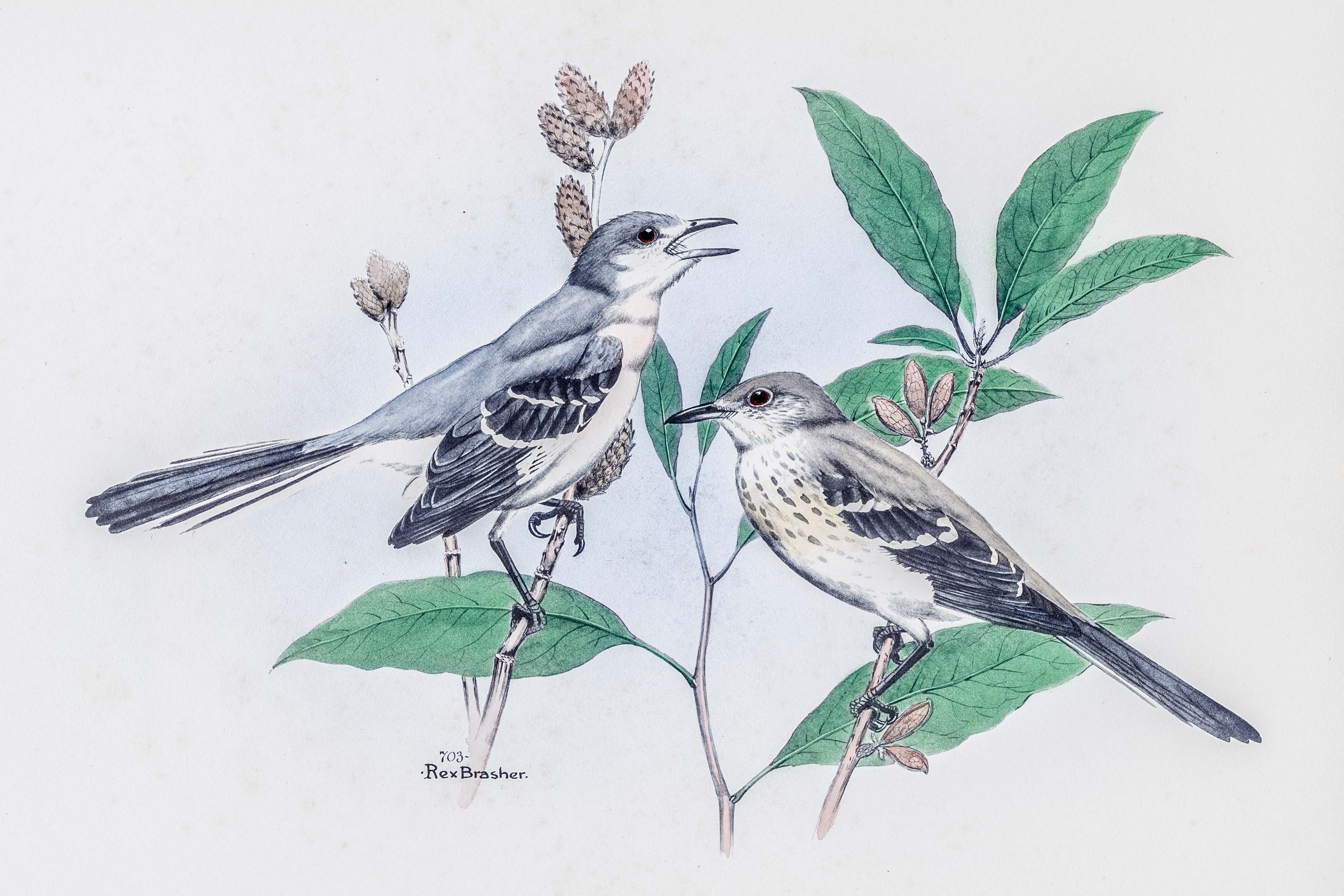
"List to that bird! His song — what poet pens it?
Brigand of birds, he's stolen every note.
Prince tho of thieves — hark how the rascal spends it!
Pours the whole forest from one tiny throat!"
"Incomparable" seems to be the only word fully defining the rare beauty of this gray-coated minstrel's song. The singing mood is as likely to seize him in the night hours as in daylight. Silhouetted against the moon, for he seldom sings until the moon is risen, from the top of a magnolia he fills the shadows with ringing notes fairly quivering at times with the ecstasy of feeling.
"MOCKINGBIRD" is somewhat of a misnomer for, though possessing the gift of mimicry in a wonderful degree, his song is often original. Even when he essays imitation the notes of other feathered vocalists are so improved, so much more sweetly rendered, that they must be taken as his own production. There are times, however, when he repeats exactly, tone for tone, other bird calls, much to the annoyance of the ornithologist. Deep in the tangle of Southern shrubbery the call of some rare bird he is anxious to see comes to him. A struggle through the briars and intricately-laced limbs is rewarded not by the bird he expected but by the sight of our loquacious friend. There he is, calmly perched on a limb, tail perpendicular, head up and it almost seems as though he were fully aware of the joke.
Though his range is usually confined to the Southern States, a few venturesome individuals roam as far north as Connecticut. The Northern climate is gradually becoming less rigorous, statistics to the contrary notwithstanding, and it may be that the future will find this feathered Patti more numerous north of the Mason and Dixon line. A few years ago a pair built their nest and raised young within fifteen miles of New York City. The changed environment made them more silent than their comrades farther south but more than one concert was listened to with great delight by the few bird lovers fortunate enough to know of their presence. A protective committee was appointed and did such good police duty that the three eggs were hatched and the young ones safely raised to accompany their parents on their trip toward the land of magnolia and orange blossoms.
We are part of all that has happened in the past. Creative art is based on inherited and personal experience. To accuse Mockingbirds of pure plagarism is neither just nor in line with fact.. Birds only a few months old, who have had no opportunity to hear certain other songsters, have given an extended concert of these same birds' songs. One observer listed 55 different songs imitated but anyone who has heard the Mockingbird will admit that there is always an individual touch which gives the performance a charm all its own.
The boisterous 'trade' had ceased waving palm fronds and the narrow golden strip of water between sloop and shore lay rippleless. I sat in the cockpit enjoying the temporary cessation of continuous wind. A bird flew from shore shrubbery and lit on the crosstrees. He looked sideways at me, turned an eye aloft and his back to me — reversed — settled comfortably close to the masthead — and then! A tiny tinkle — "a sound so fine, nothing lives between it and silence" — Biscayne Bay faded and I was back in Maine, hearing ice particles clinking from spruces. Pictures followed the tumultuous, or tender, notes — keening of a winter gale thru the schooner's rigging, on Georges — Plover calling over Monomoy — Yellowthroats singing in a South Beach dawn. With closed eyes Memory traveled far in the minutes that graybacked minstrel touched the major strings. My eyes opened — the swift tropic dusk had fallen and the bird was gone — but not the memory — ever!
Southeastern United States, north to Maryland, Ohio, Illinois, Iowa and eastern Nebraska. Casual to Massachusetts, Maine, Ontario and Nova Scotia.